The doors were first opened to students in search of a higher-level education back in 1868, amid the post-Civil War era. The focus in those early years was narrow, and attendance was small. But even in those earliest days, many of the seeds that make the University of Wisconsin-Whitewater what it is today were already germinating on campus.
“Our mission then was to train teachers for one-room schoolhouses,” Jeff Angileri, Executive Director of Marketing and Communications with UW-Whitewater, explains. “We had 48 students enrolled that first term.”
Today, UW-Whitewater hosts upward of 12,000 students in a given school year and boasts more than 100,000 alumni. Teachers still fulfill their licensure requirements through the university, but the campus also serves as a platform for students earning specialty certificates and bachelor’s, master’s and doctoral degrees in a range of disciplines.
Even in a crowded field of university and college options in Wisconsin and beyond, UW-Whitewater has managed to carve out several specific niches, including its business program, which has gained notoriety both nationally and beyond.

Three UW-Whitewater educators are oftentimes credited with laying the foundation for the business program in the first half of the 20th Century: Marie Benson, a shorthand teaching expert; Paul Carlson, a professor who penned 22 editions of a textbook on bookkeeping and accounting; and Jane Clem, who wrote the first typing textbook.
“Our business program has been noted as one of the best in the world,” Angileri says. “Our other academic offerings here are quite broad, and they have expanded quite a bit since the founding.”
Another feature that has given UW-Whitewater notoriety beyond the community is the campus’ inclusive mindset, particularly for students with disabilities. Indeed, more than 50 years ago, UW-Whitewater began offering programs and accommodations for students with physical disabilities. That philosophy has since shifted to students who are deaf, hard-of-hearing or have vision disabilities, in addition to people diagnosed with chronic health, learning and psychological conditions.
The university’s all-inclusive mindset is also evident in the athletics arena, where the Warhawks have gained achievements through such sports as wheelchair basketball. Over the years, athletes taking part in the wheelchair basketball program have won a collective 16 national titles, and some have gone on to participate in such events as the Paralympics.

“We had a number of revolutionaries way back when,” says Ryan Callahan, the university’s Director of Athletics. “They wanted that accessibility for students with disabilities, and it’s something we take pride in. Our accessibility on campus is second to none. It is extremely, extremely important.”
Game-day sporting events and competitions are among the public-facing events and features found on the UW-Whitewater campus. The close-knit environment that is stitched throughout the university and broader community provides spectators with an opportunity to have more interaction with athletes.
Callahan says student athletes, coaches and administrators are more than happy to reach out and chat with younger athletes, parents and others interested.
“We pride ourselves on having that accessibility,” Callahan says. “It’s what separates us from a lot of the other schools. We have a lot of intellectual capital within our grounds. One of our goals is to spread that around.”

The arts are another area where UW-Whitewater has served as a resource for the community-at-large. Throughout the year, the campus hosts a variety of concerts, theatrical performances, exhibits and other cultural events.
Eileen M. Hayes, dean of the university’s College of Arts and Communication, says the Young Auditorium is a shining example of the unique offerings available in the greater Whitewater area.
“It is our premiere, regional performance venue,” Hayes explains. “I think that it’s especially valuable to the community. It brings a wide range of artists, from the big Broadway shows to more local favorites. You don’t have to drive all the way to Madison or Milwaukee for this kind of entertainment.”
The College of Arts and Communication has on tap a number of concerts, performances and exhibits in the first half of the school year. Examples include solo and ensemble performances with visiting musicians, faculty and students. Two theatrical performances also are on the docket: “A Place With the Pigs” and “She Kills Monsters.”
A centerpiece of the communitywide programs is the annual gala benefit concert, which this year will take place at 7 p.m. on Saturday, December 4. Information on admission fees for this and other events is available online at tickets.uww.edu.
“That’s our big fundraising effort for music scholarships,” Hayes says of the gala benefit. “It’s always a lot of fun because the entire music department works together with all of the other department ensembles to put on a fabulous show. You get all of the genres at once.”
In addition to sports and performing arts, generations of people have also taken in the natural landscape when traversing through the campus. It serves as a platform for outdoor education, but also functions as a place for people of all ages to enjoy.

“We’re a university on a prairie, and we’re fortunate to have more than a hundred acres that is designated as a nature preserve,” Angileri explains. “It is open to the public and has more than five miles of trails with a variety of ecosystems.”
While much has changed since UW-Whitewater welcomed its first incoming class more than a century-and-a-half ago, many of the goals and principles from those earliest days are still intact.
“I can’t say enough about the culture here,” Angileri says. “UW-Whitewater is the kind of university where a professor will come into work on a Sunday, during a Green Bay Packers game, to tutor a student and help them with their assignments so they can achieve success.”
He adds, “We champion one another, we take care of one another. We bleed purple.”
By Dave Fidlin
Photos by Craig Schreiner













